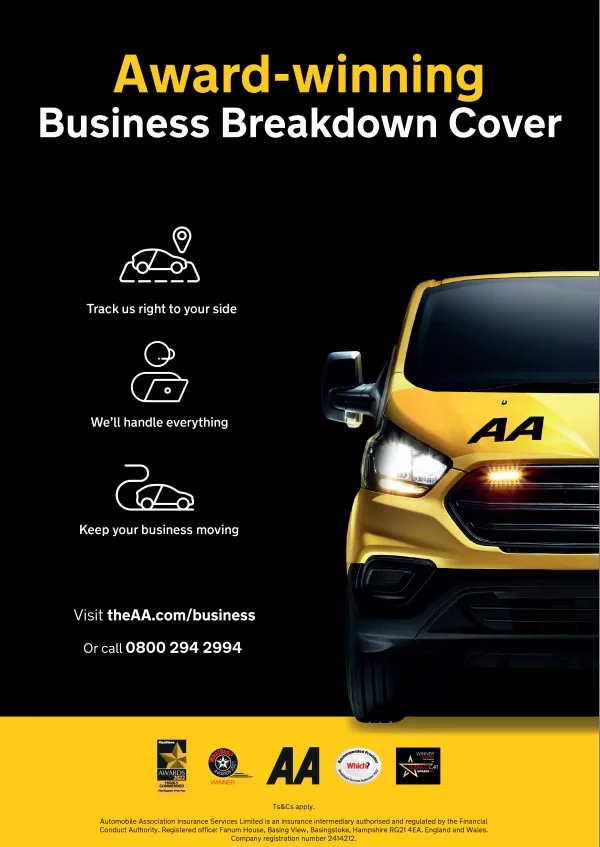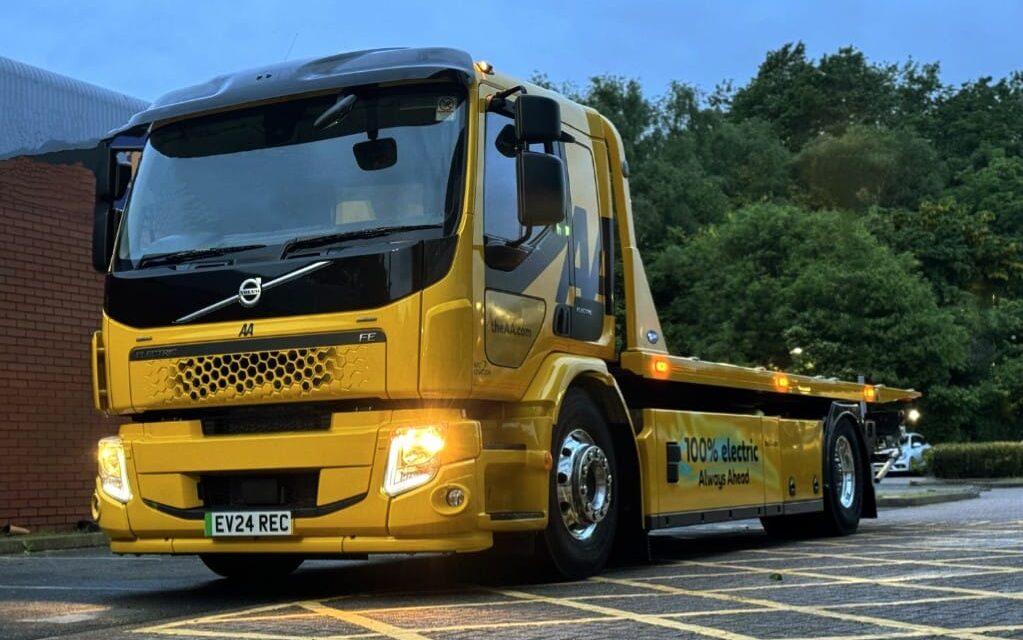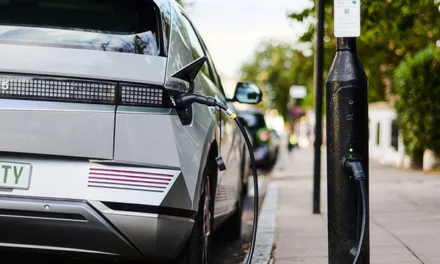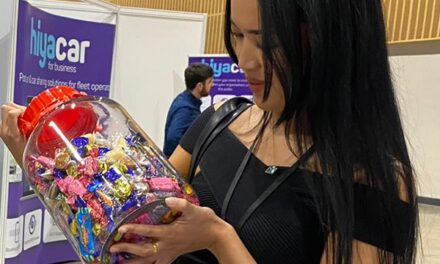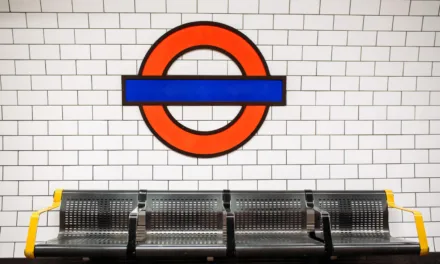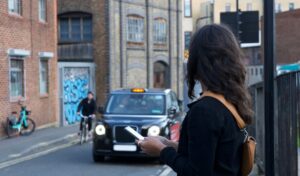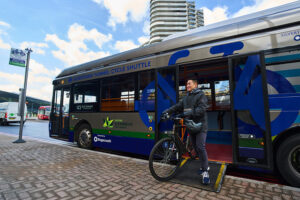Fully electric recovery trucks will be hitting the UK’s roads thanks to a pioneering launch from The AA. The move will see The AA become the first UK-based roadside assistance firm to add full electric recovery vehicles to its fleet.
Due to the complex vehicle requirements, The AA is taking a “test and scale” approach to fleet decarbonisation with structured tests of alternative fuel vehicles in real-life settings.
The UK’s largest motoring organisation hosted a Fleet Decarbonisation event at its Oldbury Operations Centre today (Friday), unveiling the most recent additions to its 3000-vehicle-strong roadside assistance and recovery fleet.
Edmund King OBE, AA president, and Duncan Webb, AA’s head of fleet, welcomed guests from across the motoring world to present an overview of The AA’s Motoring Manifesto, The AA’s latest Environment Social and Governance (ESG) report and its plans to extend its range of low emissions concept vehicles. The pair discussed how The AA will navigate its way towards a net zero future before unveiling The AA’s latest electric concept vehicles to the gathered motoring press and fleet suppliers.
Advertisement
“We’re excited to introduce these groundbreaking vehicles to our ‘test and scale’ approach to fleet decarbonisation.”
Amongst an impressive selection of low-emission vehicles from across The AA business sat the day’s main attractions: a fully electric Volvo FE Slidebed; an Iveco eDaily Powerload; an Iveco eDaily crew van equipped with a heavy-duty Compact Recovery Trailer (CRT). These vehicles will become the first operational EV recovery trucks in the UK, accelerating the company’s efforts to meet its 2035 net zero target.
Edmund King OBE said: “Introducing these exciting new concept vehicles to our fleet is an important step towards our goal of becoming a net zero company by 2035.
“As a market-leading organisation, we are committed to showing the way as the country transitions to a zero emissions future.”
Volvo FE Boniface Slidebed
This electric version of the Volvo FE 19T is equipped with a Boniface VLA (very low angle) slidebed. It is the latest addition to a growing partnership between The AA and the Swedish vehicle maker. The vehicle can carry 6000kg on its recovery bed and up to 2000kg on its 2nd car lift. The vehicle has an impressive range of 170 miles and a recharge rate of 2.25 hours when using a 150kWh rapid charger. The spacious cab can carry two passengers in comfort and is likely to be used to recover vehicles in and around low-emissions zones such as London and Birmingham.
Simon Ungless, AA Commercial Group Fleet Manager, said: “This is a fantastic opportunity for us to expand our partnership with Volvo. Adding the zero-emission Volvo FE 19T Boniface-equipped recovery truck to our fleet, with its impressive payload capabilities and quick charging times is sure to make a positive impact, especially in low-emission zones. The comfort and space in the cab are an added bonus. This exciting addition is the result of lots of innovative work between The AA Fleet Engineering team, Volvo and Boniface – huge credit goes to all involved!”
Iveco eDaily 7.2T Dyson Powerload
The Iveco eDaily Powerload features Roger Dyson’s innovative remote loading system which alleviates most of the manual handling for recovery operatives by deploying the loading ramps remotely. This electric concept vehicle has a minimum range of 100 miles which is adequate to cover its intended low-emission zone application. The impressive 3000kg payload is more than sufficient to carry a broad range of vehicles including SUVs. An 80kWh rapid charger is likely to take this impressive vehicle from low charge to fully charged in less than an hour (0.8 hours), similar to an HGV driver’s tachograph break. The airy cab, which features good cross-cab access can seat two passengers in addition to the driver.
Dug Dudley, AA Fleet Engineer, said: “The Iveco eDaily Powerload concept really is an amazing vehicle. The remote loading system from Roger Dyson is such a game-changer for recovery operatives, making their job so much easier. And with a 100-mile range and a 3000kg payload, it ticks all the boxes for us. Its rapid charging capability is a fantastic feature too, making recharging quick and convenient. Plus, the spacious cab with room for two passengers is a nice touch. We’re excited to see how the trial of this innovative vehicle goes when real-world scenarios will put these latest technologies through their paces.”
Advertisement
Iveco eDaily CRT Van
Based on an Iveco eDaily crew van which has undergone a specialist conversion to allow proper installation of our CRT unit (which is commonplace across our fleet), the eDaily CRT van features a twin battery set-up which delivers an increased range of approximately 160 miles with an identical 0.8 hours recharge time to the eDaily Powerload, when using an 80 kWh charger. With a large passenger area to the rear of the driver, AA members can sit in the comfort of the leather AA-branded seats around a custom-made table complete with cup holders and built-in USB charge points. The specialist conversion has been completed by Victory Conversions and included installing an up-and-over roller shutter door, to allow recovery operators to deploy the CRT safely. The heavy-duty CRT, specially adapted by TowPro Ltd, can carry casualty vehicles of up to 3,250kg and can also recover motorcycles, EVs and 4x4s (when utilising the innovative AA Freewheeling Hubs).
George Flinton, AA Fleet Support Engineer, said: “The Iveco eDaily CRT van looks like a real game-changer for us. We’re impressed with the increased range of 160 miles and quick recharge time when using an 80 kWh charger and the fact that it has a spacious passenger area with enough room for six passengers. The leather embossed seats and USB charge points are also a nice touch. Its strength though, lies in its ability to carry a variety of vehicles, including motorcycles, EVs, and 4x4s, making it a versatile option. The comfort levels all around make this van a great choice for The AA in terms of our net zero and the need for reliable and comfortable transportation for our members.”
Duncan Webb added: “We’re excited to introduce these groundbreaking vehicles to our ‘test and scale’ approach to fleet decarbonisation. All the vehicles on show today are subject to structured tests in real-life settings and include both hydrogenated vegetable oil (HVO), electric in the highest emission intensity HGVs and across our wide range of Van applications. These vehicles form the foundation of learning for scale deployment in the near and long-term future for our customers.”